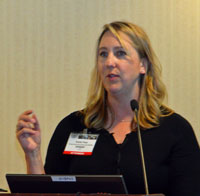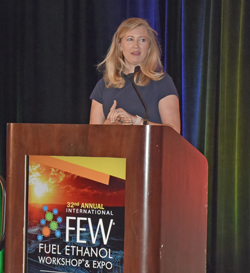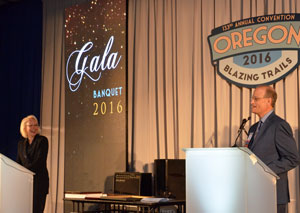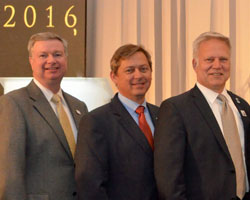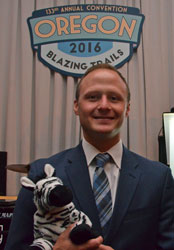 The Agricultural Data Coalition (ADC) is adding a ten person farmer advisory board to help the organization as it develops a data management reponsitory.
The Agricultural Data Coalition (ADC) is adding a ten person farmer advisory board to help the organization as it develops a data management reponsitory.
“The full potential of our agricultural data is not currently being realized because of management, storage, portability and delivery challenges,” said Joe Luck, Assistant Professor and Precision Agriculture Engineer at the University of Nebraska-Lincoln, a founding member of the ADC. “The mission of the ADC is to build a farmer-friendly product that will aid farmers in getting the most out of the vast amounts of data they collect every day, and the expertise this group of producers brings to the coalition will prove to be essential to that mission’s success,” he added.
Members come from diverse backgrounds, geographically representing seven states and also representing growers of corn, soybeans, cotton, sorghum, wheat and potatoes. Providing a well-rounded board was important to ADC, to insure the group is meeting the needs of all growers.
“As we go across the country and see different production systems for different commodities, we want to create tools that can be utilized for a broad set of needs,” said Coble, who is a W.L. Giles Distinguished Professor of Agricultural Economics at the school. “We are excited to have a diverse group of producers from across the Midwest, the Plains, the West and the South to provide invaluable insight into the unique needs of these different regions and their various crops.”
ADC’s mission is to create a neutral, independent warehouse where farmers can securely store and control the data generated by their tractors, harvesters, aerial imaging and other devices. Over time, that information can be scrubbed, synchronized and transmitted in an efficient and uniform way to third parties — whether they be researchers, insurance agents, government officials, farm managers, input providers or anyone else the farmer chooses.
During the first phase many of these advisory board members will be working with ADC to help drive user needs.
“Producers are excited about the era of data-driven agriculture, but they have significant short-term data management burdens and concerns about controlling the data that represents their ‘trade secrets,'” said Matt Bechdol, ADC’s interim executive director. “Henry Ford is famously quoted that his customers could have ‘any color car they wanted, so long as it was black.’ Getting feedback from farmer leaders is key to building functionality and control that growers will use while making sure it’s the ‘color’ they need.”
Other ADC founding members include: The American Farm Bureau Federation, AGCO, Auburn University, CNH Industrial, Crop IMS, Ice Miller LLP, Purdue University, The Ohio State University, Raven Industries, and Topcon Positioning Group.


